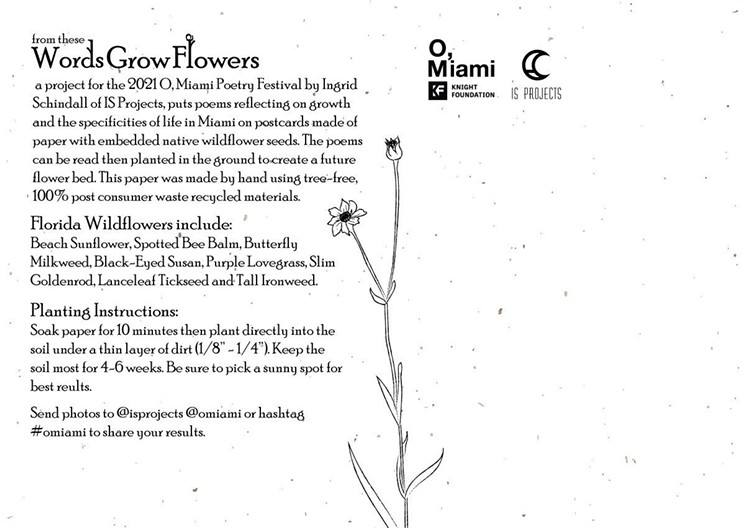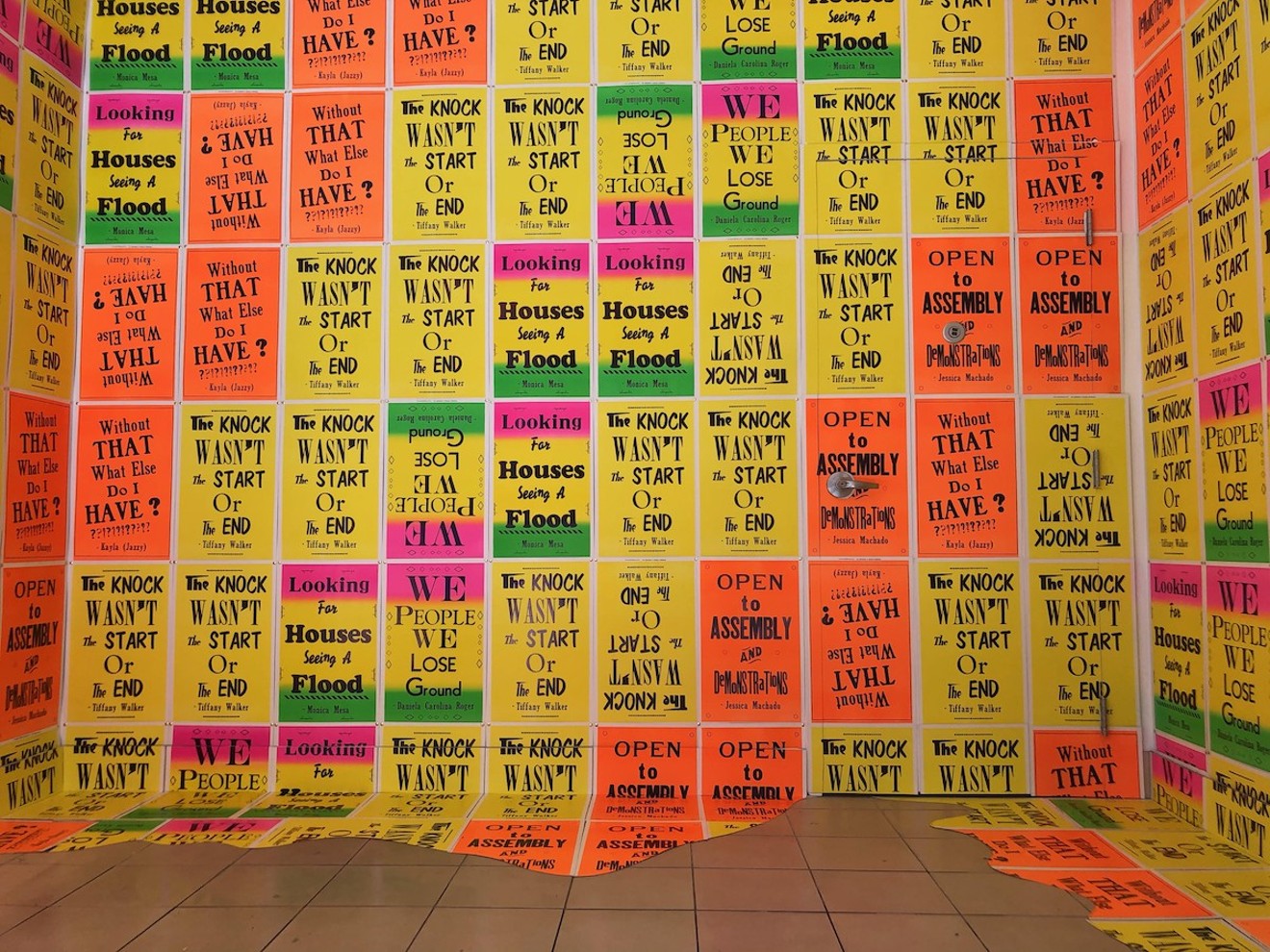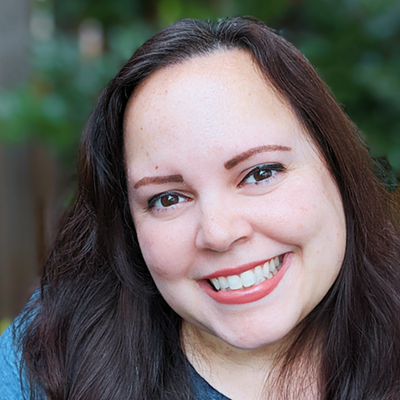Last year put a damper on the festival's goal when the pandemic forced a shift to a virtual format.
“Like most other arts orgs, we've incorporated digital platforms into our everyday programming, which is reflected in the makeup of this year's festival,” says founder and director P. Scott Cunningham. “We have a number of online workshops that people can participate in from home, in addition to some readings. All of our in-person programs are socially distant and do not encourage large gatherings.”
But for O, Miami, this year's programming has become more than merely unleashing poetry in unexpected ways; it serves as a direct reflection of a city affected by “unprecedented times.” In the past year, in one way or another, all of us have experienced loss, turmoil, and drastic changes. O, Miami acknowledges that fact with outreach and empathy.
Events are more thoughtful and provocative, empowering participants to respond artistically to their current reality. If O, Miami 2021 has a theme, it's "care." Whether it's self-care through birdwatching while reading poetry or helping others, like adding poetry to community fridges to help eliminate food security and bringing awareness to climate change as a gentrifying force through activist-inspired posters, the festival acknowledges poetry's power to bring people together.
Rest assured, quirky poetry pop-ups like “Poetry in the Plantains,” wherein Redland Fruit & Spice Park will be transformed with permanent interpretive signs, remain on the agenda. But the goal has shifted from bringing poetry to the masses to bringing a sense of respite from the stress of everyday life.
Ingrid Schindall, owner and director of IS Projects, a public-access printmaking and book-arts studio in FAT Village, Fort Lauderdale's arts district, created “From These Words Grow Flowers," which features poems printed on postcards that are embedded with native wildflower seeds. The project's inspiration came during a bout of pandemic anxiety, when Schindall resolved to start a garden on her barren patio.
“I have always been artistically inspired by the environment and interested in ways to give nature a little leg up in the struggle against the urban sprawl,” she says.

Postcards embedded with wildflower seeds will be mailed out to residents of Hialeah Gardens.
Photo by Vanessa Diaz for O, Miami
“Poetry plants a seed in your mind that can grow into new and wonderful perspectives on the world around us,” Schindall explains. “Through this project, I want to connect this metaphorical seed with physical seeds and connect personal growth to the growth of flowers. It is my hope that this project will intertwine the sight of a flower with the feeling of a poem in viewers’ minds while simultaneously creating more habitats, oases, and throughways for nature throughout our metropolis.”
Schindall worked with the O, Miami staff to narrow down which neighborhoods could benefit from having more wildflowers while at the same time reaching a new audience. Cards will be mailed to Hialeah Gardens residents with the hope of creating a wild-insect corridor in the area. They'll also be distributed to elementary schools and nursing homes in Miami-Dade County and be made available in limited quantities to attendees at O, Miami events.
For Monica Mesa, an artist recruiter and creator of the “Displacement Posters," along with Brittany Ballinger, practicing activism at the workplace has been a constant.
“While working at the Pérez Art Museum Miami as a curatorial assistant and later on as a project manager, I took on projects that aimed to either democratize the museum experience through the use of AR technology or make it accessible to underserved communities across Miami-Dade County,” Mesa says. “I believe that we must try to do the best that we can for our community using the means that we are presented with during our lifetime.”
Mesa and Ballinger also found that the pandemic isolation brought a spark of inspiration.
“I realized that I wanted to take a more active stand because after spending a great deal of time in isolation and driving around Miami, it became evident that our cultural landscape changed drastically,” Mesa recounts. “And while most of us were working from home, many of our fellow Miamians continued to be displaced from Little Haiti, Little River, Magic City, and Allapattah at an abysmal rate. I decided to educate myself and exercise the First Amendment of the Constitution to bring awareness to a problem that is relevant to our community.”
Inspired by acts of protest and fluorescent advertising posters of the 1970s, “Displacement Posters” will be installed across high-elevation areas that have seen increasing gentrification, including Little Haiti, Little River, Magic City, and Model City. The posters showcase poems by Jessica Machado, Daniela Carolina Roger, Tiffany Walker, and Kayla "Jazzy" Wallace, poets Mesa and Ballinger met through O, Miami writing workshops who were likewise inspired by the displacement phenomenon and its effects on our community.
“I am hoping to create awareness about climate gentrification,” Mesa says. “I believe that if people are being displaced from the neighborhoods where they have lived for the entirety of their lives, in the ways that they are, affordable housing must become part of the conversation as well.”
O, Miami Poetry Festival. Thursday, April 1, through Friday, April 30; omiami.org.












